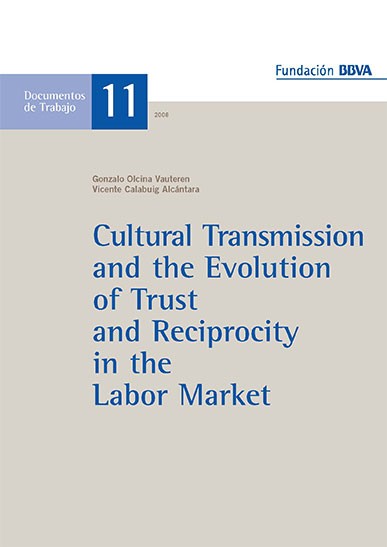
PublicationWorking Papers
Cultural Transmission and the Evolution of Trust and Reciprocity in the Labor Market
The labor contract usually assigns significant authority to the employer (hierarchical governance). The threat of hold-up of the employee by the employer, caused by this asymmetric distribution of decision rights, can be mitigated by a preference for reciprocity on the part of the employer or by a balance of power arising from the credible threat by the employee to retaliate if he or she is exploited. The authors of this working paper investigate the interaction between the employers preferences for reciprocity and the feasibility and willingness to punish hostile behavior by the employee in an overlapping generations model where there is cultural transmission of preferences.
The results show that if the net gains from specific investment are high enough, and the quantity of feasible punishment (i.e., the workers power) is also high, the economy will converge from any initial condition to an efficient cooperative equilibrium. If either of these conditions does not hold, the market will settle down in an inefficient equilibrium where not all types of workers make specific investment or, even if they do, there is surplus destruction, because selfish firms offer low wages.
Positive reciprocity on the part of the employer is not enough to achieve an efficient labor culture. There is also a need for a significant allocation of power to the workers, so as to make the threat of punishment a powerful tool to enhance efficiency and cooperation.
